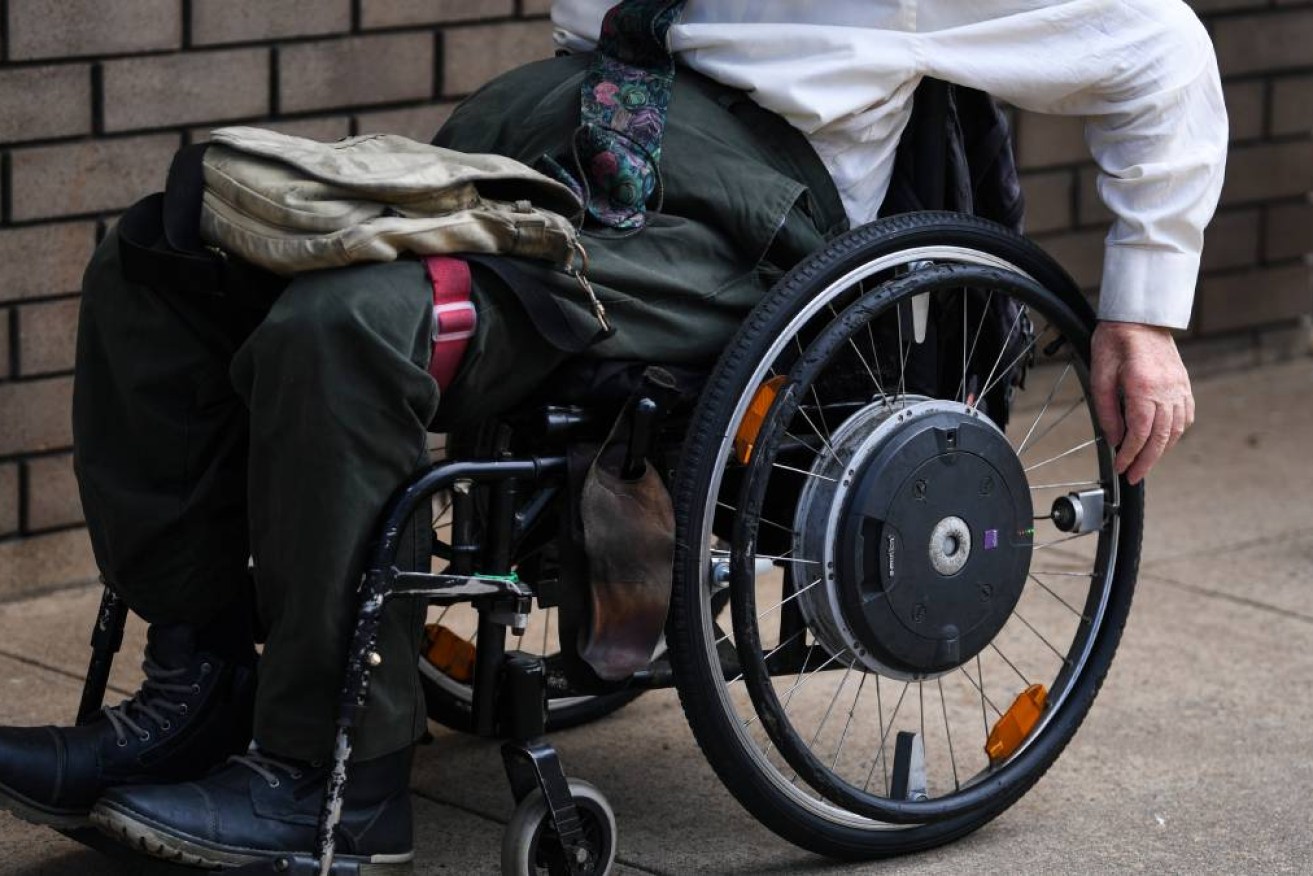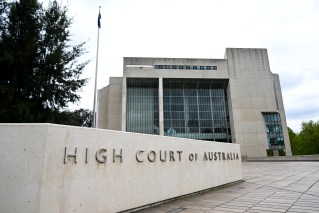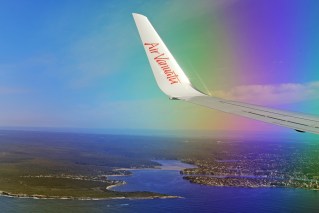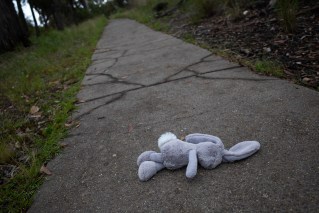‘Transformational change’ needed: Disability inquiry makes 200 recommendations

The government has unveiled the long-awaited findings of the disability royal commission. Photo: AAP
“Transformational change” is needed if Australians want to build an inclusive society where those with disabilities are to be respected, a landmark report says.
After more than four years of public hearings, private sessions and written submissions, the federal disability royal commission’s final 12-volume report and its 222 recommendations were released to the public on Friday.
People with Disability Australia president Nicole Lee said it was “a huge day for our community”.
“It is one that is filled with both pride, but also grief,” she said in Adelaide on Friday.
“We want to see a future free from violence for everybody. We want to see a future that’s fully inclusive and we want a fully inclusive future
and completely dissegregated environment and community.
“We want to define what segregation means on our terms for our community, not what other people define as a segregated environment. That includes a huge investment in prevention of violence against people with disability.”
Lee, who gave evidence to the royal commission, said anticipating the report’s release had been difficult for many in the disability community.
“There’s many of us that are sitting with copious amounts of trauma today and very, very mixed emotions. It’s both heartening to see these recommendations and to see such a large report come out – and we’re with the government on wanting to see these recommendations rolled out,” she said.
“But it’s really hard knowing that change comes really slowly. And right now, we know, tomorrow, our lives will continue to contain violence and abuse. We know, in the next 6-12 months or even five years, our lives will contain exclusion from the rest of the community.”
The government is yet to respond to any of the individual recommendations, instead announcing a taskforce to respond to the royal commission.
“The message of this report is clear — we do need to do better,” Social Services Minister Amanda Rishworth said.
“It will report through to ministers regularly with an update on progress to be made public early next year, as a staged response to the recommendations is rolled out,” she said.
The hundreds of reforms proposed by the royal commission cover a range of areas, including human rights law, disability advocacy, guardianship, schooling, employment, the justice system and housing.
Commissioners generated their findings after hearing from roughly 10,000 Australians who shared stories of violence, abuse, neglect and exploitation.
“Our vision for an inclusive Australia envisages people with disability living free from violence, abuse, neglect and exploitation in a more inclusive society in which human rights are protected and respected,” they wrote.
“For people with disability in Australia today, this remains a vision rather than a reality.”
About one in five Australians, or 4.4 million people across the country, identify as having a disability, according to Australian Bureau of Statistics data. They face increased systemic barriers to education, employment and housing, excluding them from many aspects of Australian life.
Many live in homes that do not accommodate their disabilities, others experience chronic homelessness and those who work are often paid far below minimum wage.
Children with disabilities also face multifaceted issues such as exclusion from schooling environments where they can be discouraged from attending, socially shut out, overlooked by teachers and deprived of necessary educational resources.
Those placed in youth detention are more likely to become enmeshed in the justice system, especially if they live with a cognitive disability.
All of this can mean people with disabilities are more prone to violence, exploitation, abuse and neglect than in the wider community.
Australian Network on Disability CEO Corene Strauss said the report was “distressing” but a watershed moment for Australians with disabilities.
“The report’s 222 recommendations represent an acknowledgement that the thousands of people with disability who have shared their stories over the past four years have been heard,” she said.
“It demonstrates that we have a long way to go to change attitudes towards people with a disability, including the bigotry of low expectations.”
The report calls on the government to enact a Disability Rights Act to enshrine the international human rights of those with disabilities in domestic law and proactively prevent violence, abuse, neglect and exploitation.
The Disability Discrimination Act 1992, as it stands, creates little incentive for institutions like schools and service providers to prevent discrimination and must also be amended to promote equality.
Commissioners also recommended all states and territories establish legal frameworks to reduce restrictive practices and called for a ban on non-therapeutic and non-consensual sterilisation of those with disabilities.
However, the report’s authors disagreed on whether governments should phase out settings for people with disabilities.
Commissioners Rhonda Galbally and Alastair McEwin – who both live with disabilities – and Barbara Bennett, argued that such environments separated Australians with disabilities from the wider community, and called some settings a form of “segregation” incompatible with international human rights law.
But chair Ronald Sackville and commissioner John Ryan claimed the criticisms created a false binary between wholly separated and inclusive settings, and the reality of those spaces was more nuanced.
Commissioners also recommended raising the age of criminal responsibility to 14 and establishing laws so people with disabilities who work in Australian Disability Enterprises are paid at least minimum wage by 2034.
Lifeline 131 114
beyondblue 1300 224 636
– AAP








